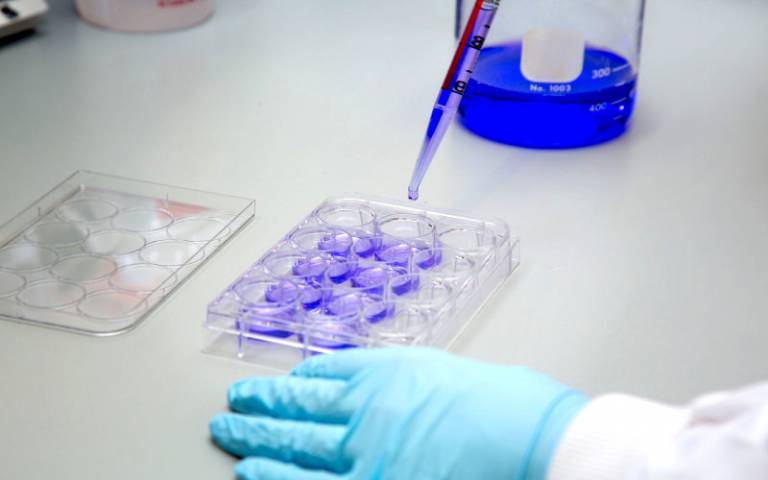Our flagship MSc covers current issues in the biology of infectious agents, the epidemiology, pathogenesis, prevention and control of infectious diseases, immunity and immune dysfunction.
The MSc Infection and Immunity teaches core concepts of infection and immunity. You’ll learn the language and concepts of infection and immunity through research-led teaching.
With an emphasis on critical analysis and data interpretation, our course ranges from basic science to translational clinical research. Our superb research and teaching environment provides graduates with a unique understanding of infection and immunity research.
We equip students with a marketable and transferable skillset applicable to many professional career paths. MSc students learn from UCL researchers and will be trained in the art of research through undertaking a full-time research project in a UCL laboratory.

Duration
- MSc: One calendar year full-time or two-five years flexibly
- Postgraduate Diploma: 9 months full-time or two-five years flexibly
- Postgraduate Certificate: 12 weeks full-time or up to two academic years part-time
Part-time students must attend at least two modules per year. They must also complete the research project in the same academic year that they register for it.
Entry requirements
An upper second-class bachelor’s degree in a relevant subject from a recognised university. Applicants who do not meet this standard may be considered if they have significant relevant experience.
English Language proficiency: If your education has not been conducted in the UK you will need to demonstrate a 'Good' English language level. See English language requirements.
Careers
Our MSc combines research-informed teaching and practical research training to provide ideal preparation for a PhD. It is equally applicable for clinicians seeking specialist training or wishing to pursue a clinical academic career.
Networking opportunities with internationally recognised senior investigators at UCL and collaborators positions our graduates for PhD programmes, research posts in diverse biomedical fields, clinical research, further training, and associated professions.
 Close
Close


